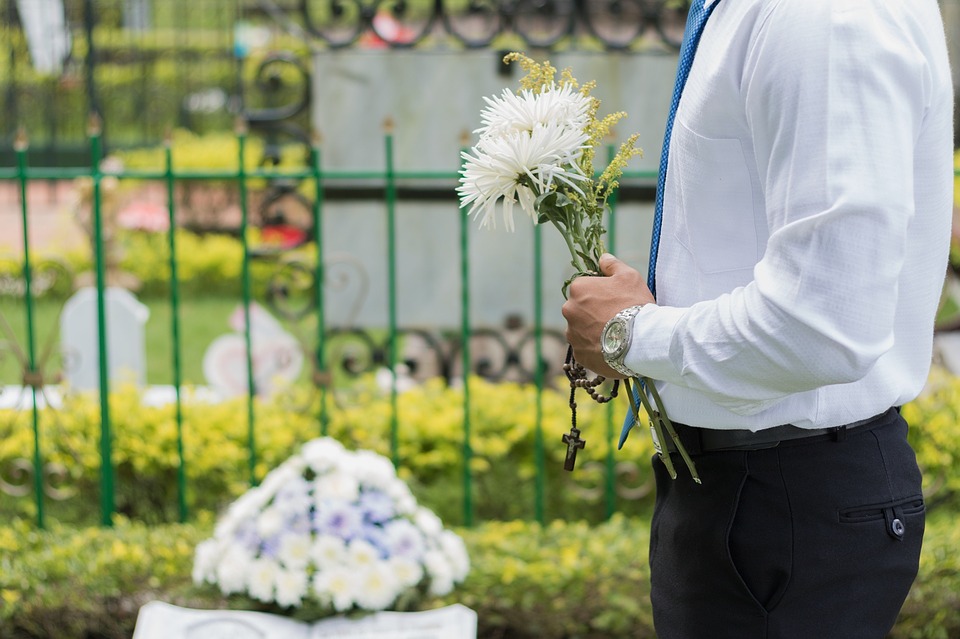 Losing someone you love is one of the most difficult human experiences you would have to endure in your lifetime. It is extremely emotionally challenging, especially if you are tasked with the responsibility of planning a funeral and memorial service.
Losing someone you love is one of the most difficult human experiences you would have to endure in your lifetime. It is extremely emotionally challenging, especially if you are tasked with the responsibility of planning a funeral and memorial service.
Making time-sensitive decisions and practical arrangements when you are supposed to be grieving may seem absurd and impossible. Still, with proper research and assistance from an experienced funeral director, you can prepare yourself should you ever be put in charge of carrying out your loved one’s final rites and farewell.
In this article, we will share a comprehensive list of steps to ease your process of planning a funeral and memorial service for your loved one.
Funeral vs memorial
A funeral service takes place with the deceased’s body present, while a memorial does not – however, an urn with the deceased’s cremated remains may be on display. The latter is usually more of a celebration of life, unlike funerals which mostly consist of sombre rituals.
A traditional funeral usually offers a wake or visitation where mourners can view the deceased and pay their final respects before the burial or cremation of the deceased. Meanwhile, a memorial can be held days, weeks, or months after the burial or cremation of the deceased and can incorporate elements of a wake within the service.
Ultimately, both funerals and memorials serve the same function; to help loved ones grieve, honour, and remember the deceased. Here are a few steps to help you plan a funeral and memorial for your loved one.
- Get the essentials sorted
A few things need to be done relatively quickly after your loved one passes away. These include:
- Getting a doctor to legally confirm the death and issue a Medical Certificate of Cause of Death.
- Check for organ donation possibilities and be ready to give consent if requested.
- Locate the deceased’s Will and/or funeral plan.
- Get the death registered with the National Registry and have a Death Certificate issued.
- Notify friends and family.
- Decide on ceremony options
If the deceased has not explicitly stated their wishes for how they would want their funeral or final send-off to be held, you will have to decide the type of ceremony that is to be conducted.
There are no fixed rules as to how a final send-off should take place, but there are several factors that can help you decide effectively:
- What would the deceased have wanted?
- Do you want to have a viewing?
- Do you want a burial or cremation?
- Would you like to have a small and intimate gathering?
- Is the ceremony going to be traditional or contemporary?
- What is your budget?
- Do you want to have an eco-friendly funeral in Melbourne?
Although these factors may seem fairly simple, they can be stressful to address – especially during an emotionally taxing period. That is why funeral directors are available to assist families in navigating the many options available and help them choose the best course of action.
- Hire an experienced funeral director
The funeral director you choose can affect your whole event so it is one of the most important decisions when organising a funeral. Essentially, the role of a funeral director is to handle the organising and planning of a funeral ceremony so that families can grieve in peace.
They help with the paperwork, including the processing of the Death Certificate, preparing and transporting the deceased, and getting you the support you need in making funeral arrangements, among others. They also offer various services and packages that can usually be tailored to your needs, especially if you want an affordable funeral.
Once you hire the right funeral director, the whole process will be smooth-sailing as the funeral director will take over the reins and allow you to grieve with your family and friends. It helps to write down a list of questions you may have for your funeral director so that you can conclusively decide which one is right for you and your family.
- Book a location or venue
Whether you are planning a funeral, memorial, or both, you have to decide and book a venue for these ceremonies. Like any other event, you have to pick a day, time, and location and book it as soon as possible.
Many people may assume that a funeral has to be done in a religious place of worship but that notion has changed over time. Nowadays, an end-of-life service can be done anywhere that reflects the deceased’s wishes and your budget. From a public park to your home backyard, the options are limitless – especially when you are planning a memorial service.
- Arrange for catering
Food is an important part of any event, even a funeral service. However, this is a detail many may forget until the eleventh hour in the midst of organising other parts of a funeral or memorial. Nevertheless, it is a simple arrangement that can be sorted in no time.
If you are booking a function room or an event space for the funeral or memorial, you may be presented with their existing catering options, where you can select or even personalise your preferred food arrangement. This eases your process of finalising a menu.
On the other hand, you could also decide on catering based on the deceased’s favourite food and plan accordingly. Sometimes, you may only need to order light refreshments depending on the size of your guests and the type of ceremony.
- Finalise an order of service
Having an order or service at any program will ensure everything is smooth-sailing throughout the day as guests are informed of the flow of events. Generally, the funeral order of service is as follows:
- Welcome and introduction by celebrant or emcee.
- Eulogy and tributes.
- Viewing for a funeral or reflection time for a memorial.
- Final message.
- Committal – prayers for religious services, sometimes at the gravesite or final resting place of the deceased.
- Farewell refreshments.
Understandably, time is limited when preparing for an end-of-life service however, you are not obligated to make a hurried decision to get it over with. Whatever type of ceremony you have chosen to do, it is important to take time to identify the important details, research, and plan properly before making a decision.
Discuss with your funeral director about your ideas, concerns, and everything else related to the funeral service. An experienced funeral director will ensure everything runs smoothly and your loved one gets a proper send-off.







